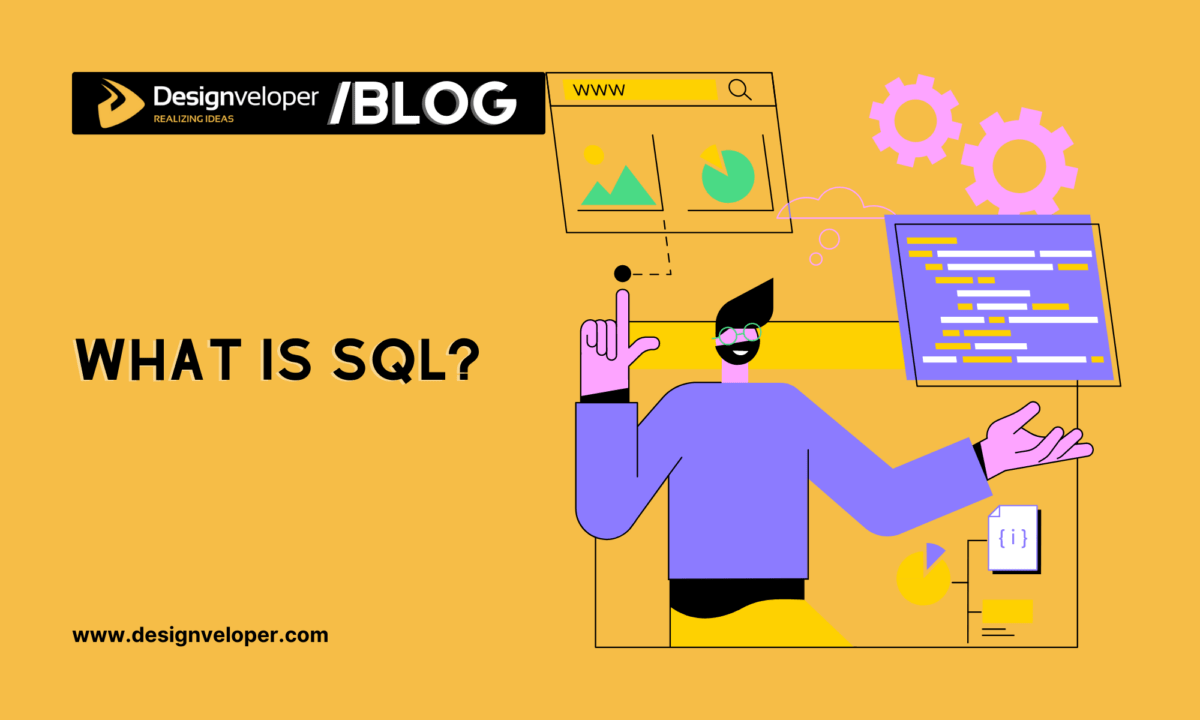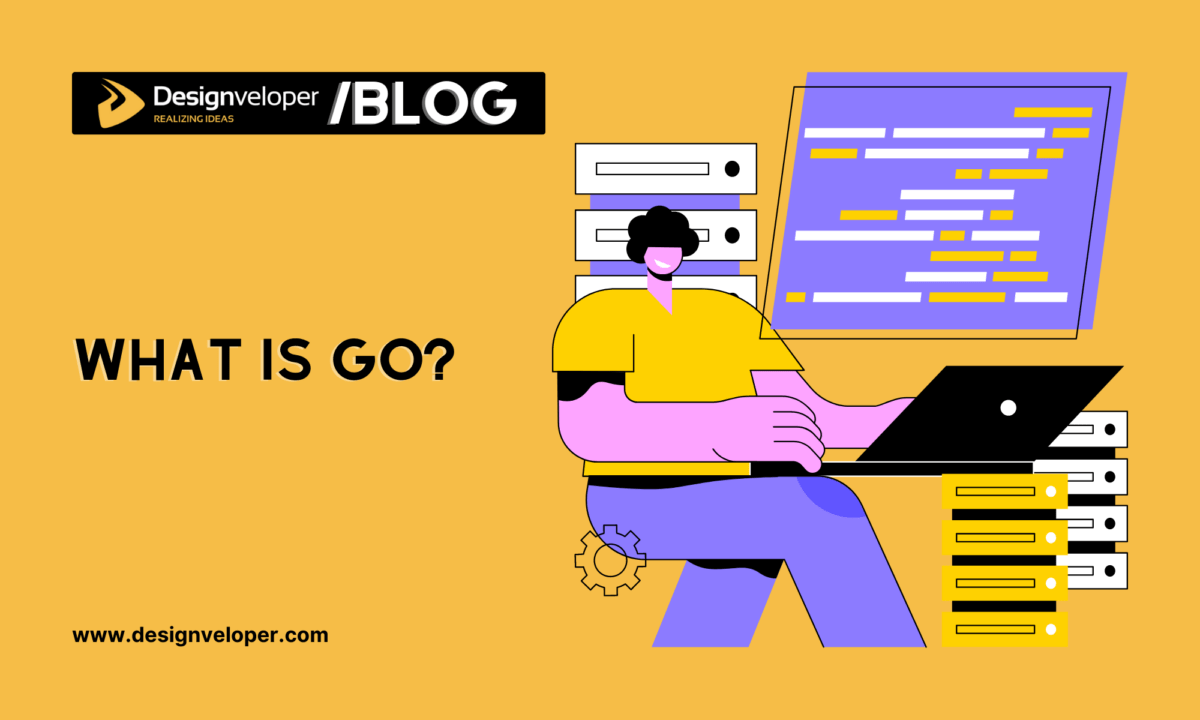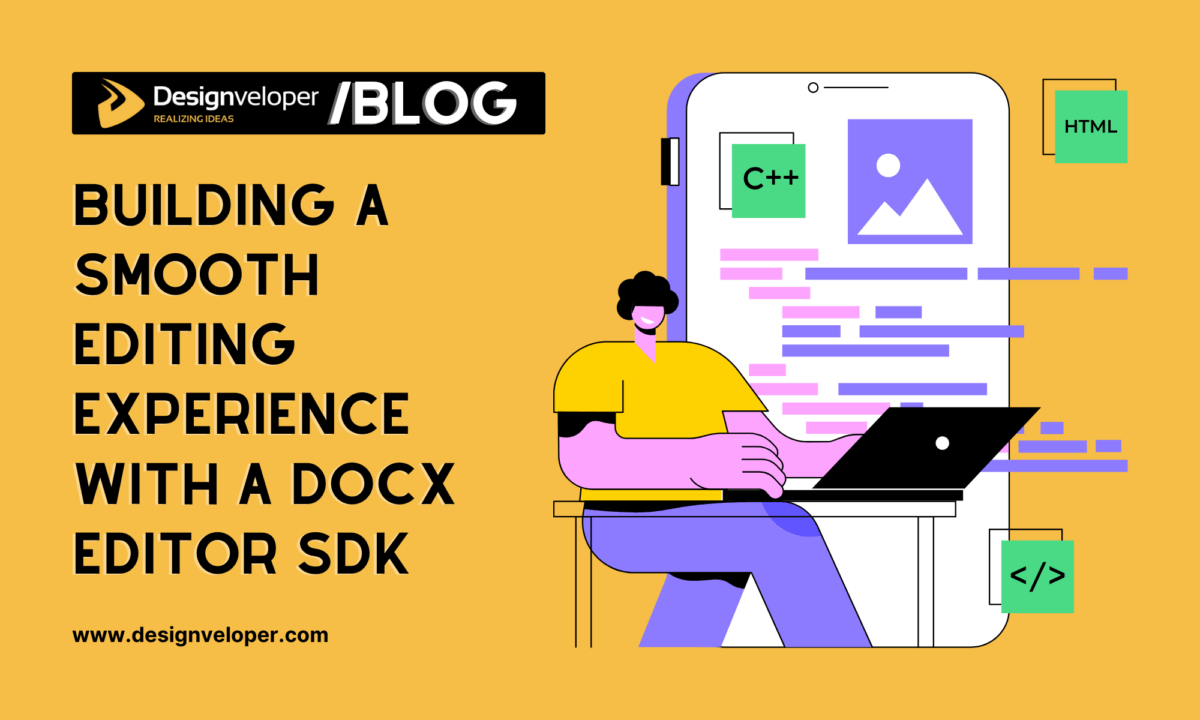Top 10 Best Programming Language for Beginners in 2025
February 18, 2025
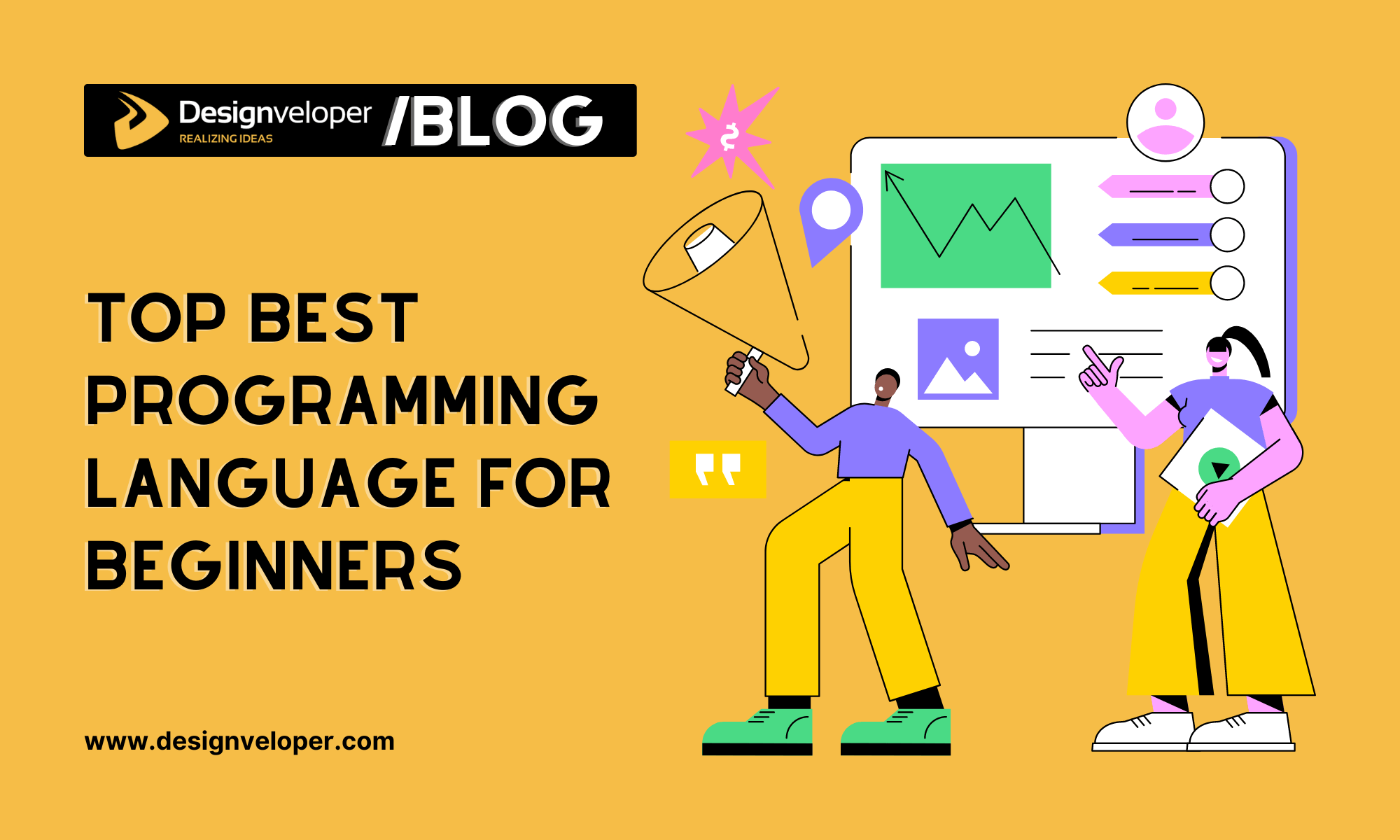

It seems that technology rules the world these days. Then, the scene of being able to make the computer or mobile device dance to your tune seems to be very attractive. Writing computer code becomes “a super hot pot” that everyone tries their best to join. However, the question is: what is best programming language for beginners? So, this article today will elaborate on the top 10 languages you should consider as a newcomer.
Understand Programming Languages
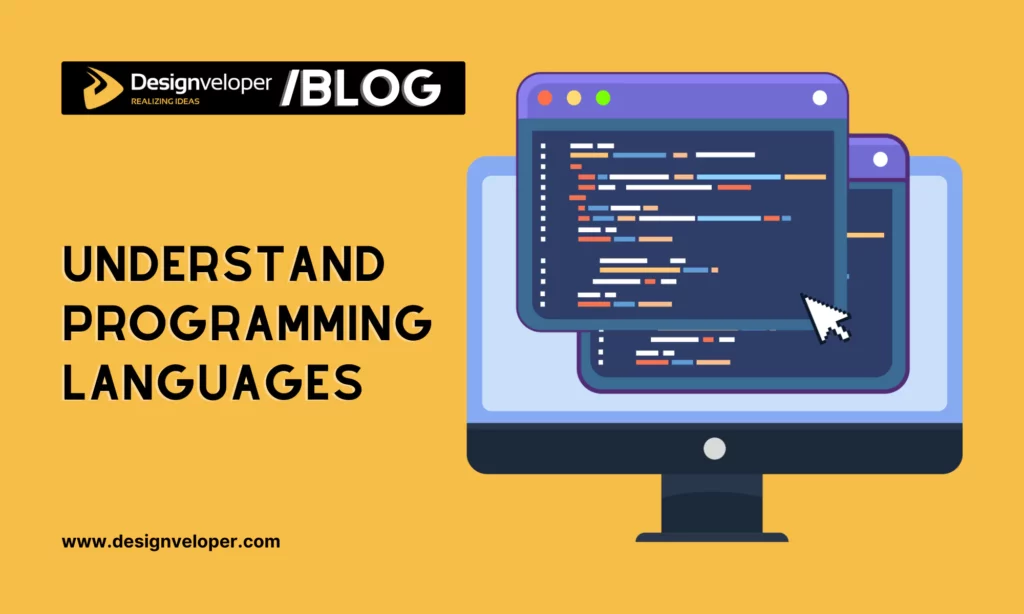
We often communicate with human beings in different languages like English, German, or Vietnamese. So, we also use programming languages like JavaScript, C++, or Python to interact with computers. In other words, a programming language is a special set of instructions that we use to communicate with machines.
Like human languages, programming languages also have their own grammar and vocabulary. This grammar is called the syntax of the languages, which defines how to combine instructions to create a program.
What do You Use Programming Languages For?
So, why should you use programming languages? Here are some of their benefits:
- Efficiency: Programs can perform calculations and data manipulation much faster than humans. This makes them ideal for tasks that would be too time-consuming or error-prone for a person to do manually.
- Automation: Programming languages create automation features that help you automate repetitive tasks. For example, generative AI tools which was initially backed by such languages as Python or JavaScript help we at Designveloper in completing code, fixing bugs, creating test cases, and more. This saves us much time and effort in software development.
- Problem Solving: Programming languages offer a powerful tool to solve complex problems that would be tricky or impossible for humans to solve on their own. One typical example is data analytics. Such languages like Python, R, or SQL stand behind the success of data analytics tools like Tableau and help humans analyze data more quickly and accurately.
- Creativity: These languages are used to create a diverse range of software, from this website to mobile apps and video games. Such software supports us in different aspects of life. For example, you can use Microsoft Teams to securely connect with your colleagues, friends, and family members. Or you may leverage YouTube for entertainment or learning something new.
What Should You Consider to Choose a Programming Language as a Beginner?
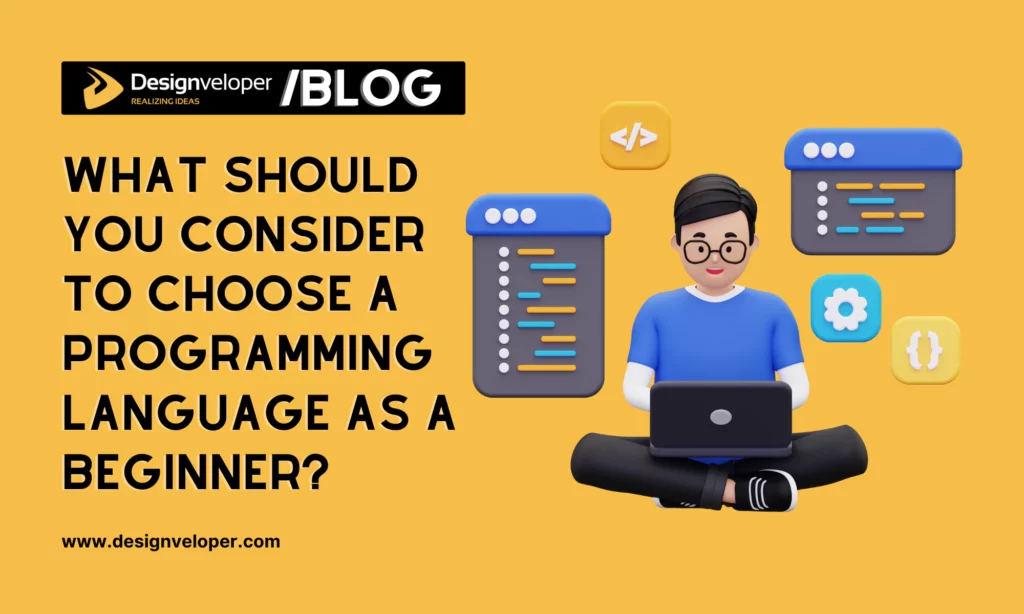
To choose a suitable programming language among a multitude, consider some things as follow:
1. Your Interests
What kind of programs do you want to build? Different languages serve different tasks. For instance, Python is great for data science and machine learning, while JavaScript is commonly used for web design. Whether websites or mobile apps, you should do thorough research on what languages are popular in your area of interest.
2. Ease of Learning
Some languages are designed to be easier for beginners without coding knowledge. Languages like Python and JavaScript have a relatively simple syntax and a large community of learners. This makes it easier to look for support and resources.
3. Job Market
Consider your learning goals when choosing a programming language. Do you learn it for a career change or just for fun? Some languages (like Python) are in high demand by employers.
4. Learning Resources
Choose a programming language that has lots of learning resources available. These include courses, bootcamps, online tutorials, and books.
10 Best Programming Language for Beginners to Learn
There are various programming languages, each with its own pros and cons. But what should you consider as a programming language for newcomers? Let’s delve into the top 10 languages that are not only easy to learn for first-time learners but are also considered the most profitable.
1. JavaScript
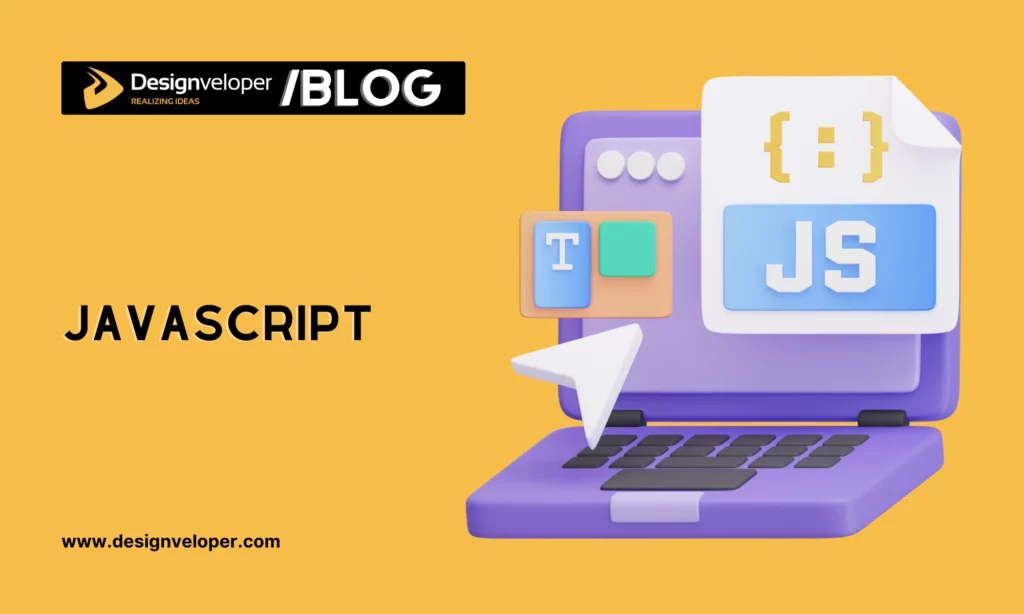
JavaScript is a versatile and beginner-friendly language that brings websites to life. Further, it has a relatively simplex syntax and structure compared to other programming languages. This allows you to grasp the basic concepts of programming easily.
Also, JavaScript is considered the most used programing language by developers (63.61%). Therefore, it provides a lot of job opportunities and vast learning resources. As you progress, you may discover other popular JavaScript frameworks and libraries like React or jQuery to build more powerful and complex web apps.
What Can You Build With JavaScript?
JavaScript helps build interactive elements, dynamic content, and cool animations in the website interface. With JavaScript, your web pages can respond to user actions (e.g., button clicks or form submissions), communicate with servers (back-ends), and update content without reloading the entire pages.
But JavaScript isn’t confined to websites. It’s also ideal for developing small-scale web apps that perform certain tasks (e.g., calculators or to-do lists) or building simple games that run on your web browser.
2. PHP
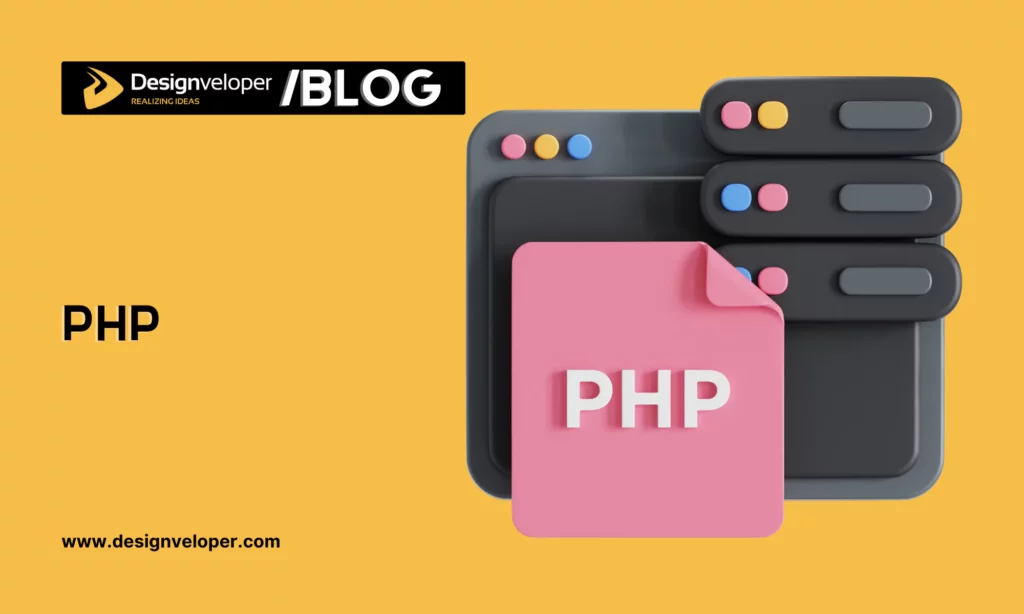
PHP (Hypertext Preprocessor) is a server-side language that brings your websites to life with interactivity and user engagement. It also creates the content you see on the website. So how does it work? Let’s discover:
For example, when you interact with a web page, the web server will send the PHP code related to that page. PHP then runs on the server and interacts with databases or other resources. After that, it will generate HTML content based on your request and data. Finally, the web server will send the generated HTML content back to your browser.
What Can You Build with PHP?
With its capabilities, PHP is often used to build interactive features, including:
- User logins and registration systems
- Content management systems (CMS) for managing website content
- Shopping carts and eCommerce apps
- Forum and social networking platforms
3. Python
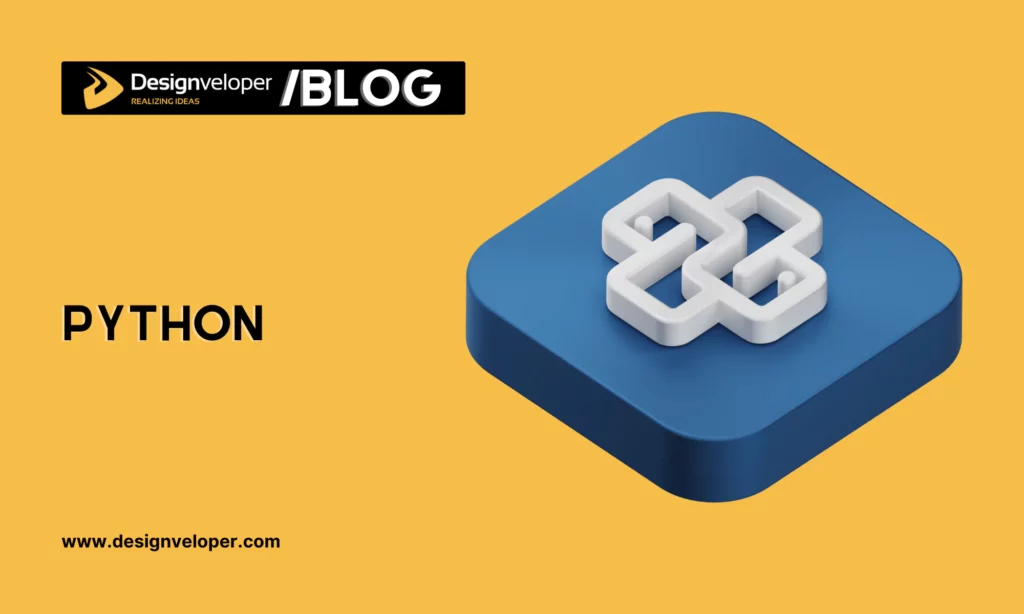
Python is another great programming language for beginners. We, programmers always desire to use as few lines of code as we can to express a concept, right? Python can absolutely make it possible because of its simplicity and readability. It’s usually used and referred to as a scripting language, allowing you to churn out large quantities of codes in short periods of time.
So why is Python a decent option for newcomers? It offers a smooth learning curve, a clear syntax, and a supportive community. Particularly, its code resembles plain English, making it easier to understand compared to other programming languages.
What Can You Build With Python?
Python has a wide range of applications in various areas:
- Web Development: Python powers popular web frameworks like Flask or Django, which enables you to develop full-fledged web apps.
- Game Development: Python can be used to build simple to medium-sized games with libraries (e.g., Pygame).
- Data Science: Python is a go-to language that supports data analytics, data manipulation, and machine learning.
- Automation: Python excels at automating and streamlining repetitive tasks, freeing you up for more strategic tasks.
As you progress with Python, you can explore more advanced areas like AI applications, machine learning models, and complex scientific computing.
FURTHER READING: |
1. 17 Computer Programming Languages that You Should Learn |
2. The 4 Programming Languages Used by Top Companies |
3. Top 5 iOS App Development Languages: How to Choose the Right One? |
4. Go
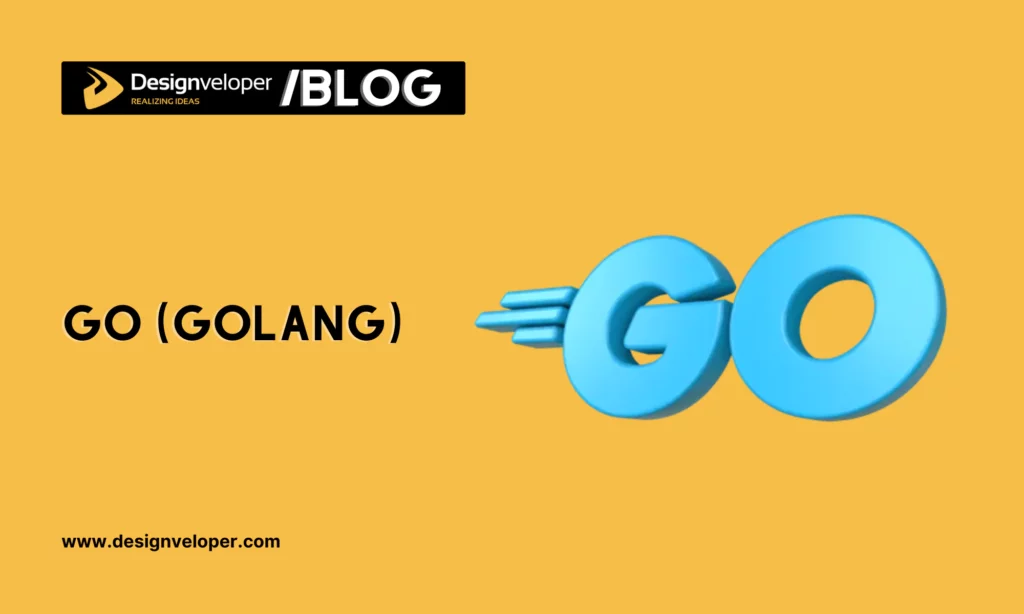
Go, also called Golang, is a programming language developed by Google for beginners. It combines the ease of learning and readability of such languages as Python with the performance and efficiency of more complex languages like C++. With Go, you can comprehend core programming concepts quickly and start building things sooner.
What Can You Build With Go?
Go is widely used to build back-ends, APIs (Application Programming Interfaces), and web apps with such frameworks as Echo or Gin. Further, it helps develop user-friendly software that automate tasks and create network servers or apps that communicate over the Internet. Various cloud platforms utilize Golang for their functionalities because of its performance and scalability.
As you progress with Go, you can build microservices architecture, distributed systems and even smaller ML models with libraries (e.g., GoLearn).
FURTHER READING: |
1. Top 5 Best Android App Development Languages |
2. The 7 Best Languages for App Development |
3. Top 7 Web Development Languages To Use |
4. Top 6 Trending Programming Languages |
5. Ruby and Ruby on Rails

Ruby is a great language that can help you with the backend aspect of your programming. Despite having a similar name to Ruby, Ruby on Rail is a web app framework built on Ruby.
Learning Ruby is much easier than in other languages as it’s super flexible and very forgiving. This translates to more time spent absorbing programming fundamentals and less time banging your head against your desk. Further, its community is welcoming and provides plenty of resources for beginners.
What Can You Build with Ruby and Ruby on Rails?
With these techs, you can build:
- Simple websites with dynamic content, user accounts, and forms
- eCommerce stores with product listings, shopping carts, and secure payment processing (with additional libraries)
- Interactive social networking platforms with user profiles, posts, and communication features.
- Web apps with Rails’ flexibility and extensive libraries.
Further, you can delve into more advanced things with Ruby and Rails like APIs, unit and integration testing, etc.
6. C/C++
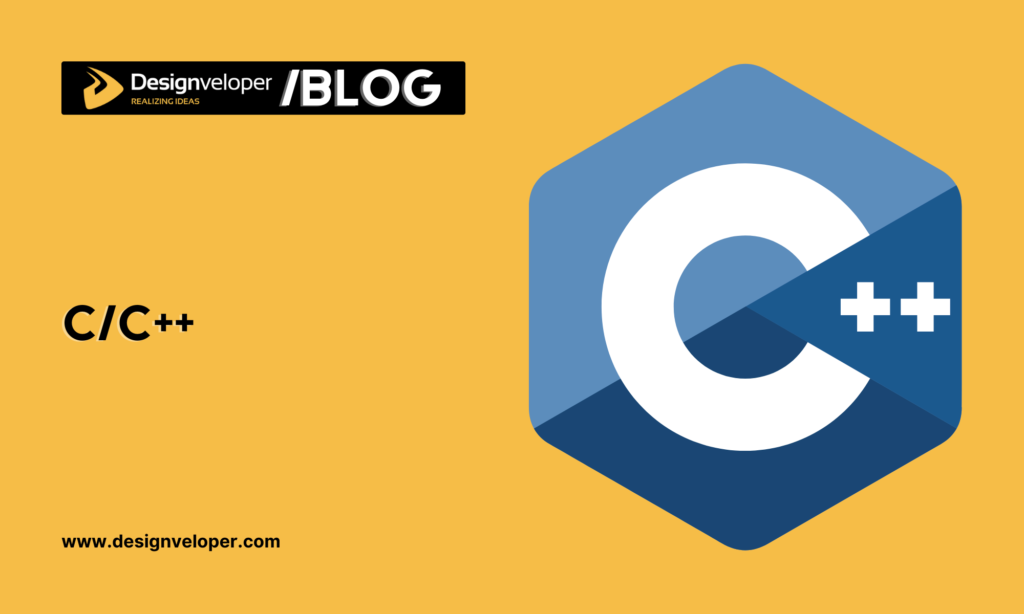
C and C++ are two powerful programming languages behind modern computing. They power everything from operating systems and game engines to embedded systems and scientific simulations. Here’s their key difference:
- C: This is a foundational language known for its efficiency and direct control over hardware. It’s often seen as the language behind the scenes, enabling other languages and apps work well.
- C++: This is an extension of C. It provides such additional features as object-oriented programming (OOP) for better code organization.
Compared to other languages in this list, C/C++ require a deeper understanding of programming concepts as they have complex syntax.
What Can You Build With C/C++?
With C/C++, you can build major operating systems like Windows or Linux and embedded systems (e.g., micro-controllers or other small devices). Further, it supports game engines like Unity or Unreal Engine to build core functionality. It also stands behind high-performance apps to implement critical tasks like scientific simulations and graphics rendering.
7. Swift
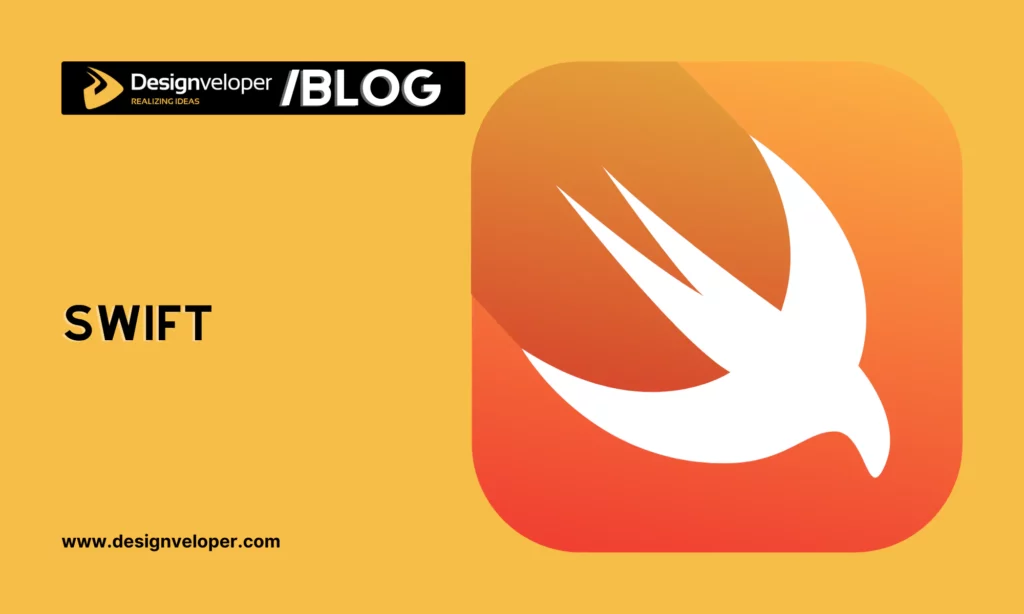
Swift is a modern and powerful programming language created by Apple. It aims at building apps on Apple’s platforms including iPhone, iPad, Mac, Apple TV, and Apple Watch. Swift is famous for its easy-to-learn syntax, safety features, and ability to develop robust and interactive apps. Further, Apple offers a funny Swift learning app called Swift Playgrounds that supports beginners to learn Swift with ease.
What Can You Build With Swift?
As already said, Swift is widely adopted for developing apps on Apple platforms. As you progress with Swift, you can build more advanced functionalities for your apps with additional libraries.
For example, at Designveloper, we developed a robust data encryption feature in the Domestic Payment SDK to foster mobile transaction security.
Further, we adopted the SwiftyRSA library, a reputable RSA encryption solution for Swift, to ensure the safety of payment transactions. This library offers fast encryption, decryption, signing, and verification. This gives end-users a smooth and secure experience. Besides, SwiftyRSA also supports multiple iOS versions, which simplifies app development and maintenance across different devices.
Also, we leveraged Realm-Swift, a powerful NoSQL database, to manage user data and support multiple flexible data models for diverse storage demands.
8. Java
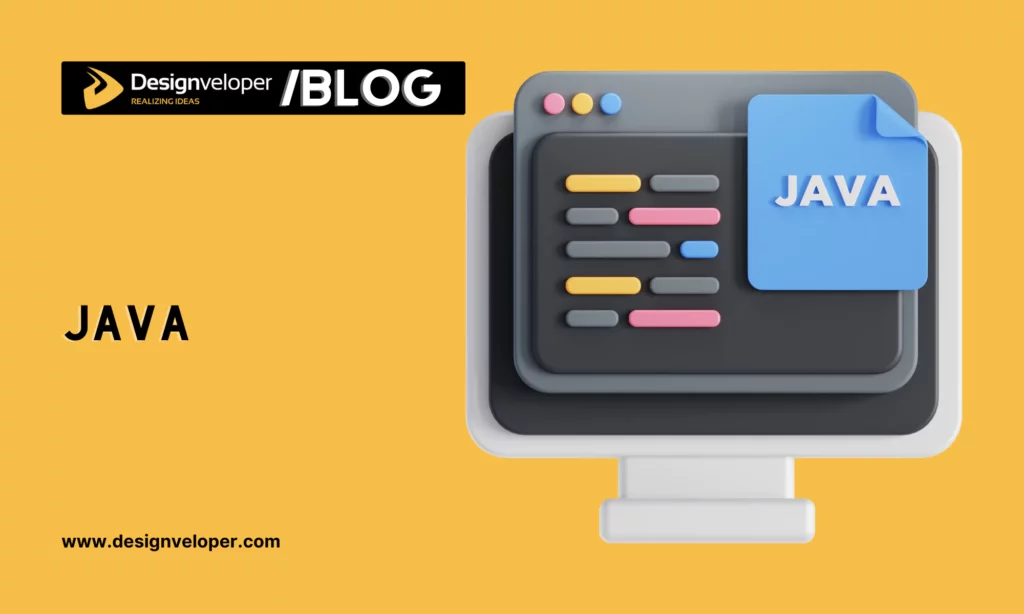
If you want to build a strong foundation in computer science, don’t overlook Java. This programming language opens more career doors for beginners to step into the software development world. Java has a large and supportive community with a wealth of resources for you to learn and troubleshoot.
Further, its code is considered readable with numerous open-source IDEs (Integrated Development Environments) available for code writing. Java is also renown for platform independence. This means you only need to write Java code once and let it run on any computer system with a Java Runtime Environment (JRE) installed.
Besides, it has an extensive library of pre-written code (APIs) you can utilize to execute numerous tasks. This saves you much time and effort to develop an app.
What Can You Build With Java?
With its capabilities, Java helps you develop native Android apps, feature-rich desktop apps, large-scale enterprise apps, and web apps with additional Java frameworks like Spring.
9. SQL
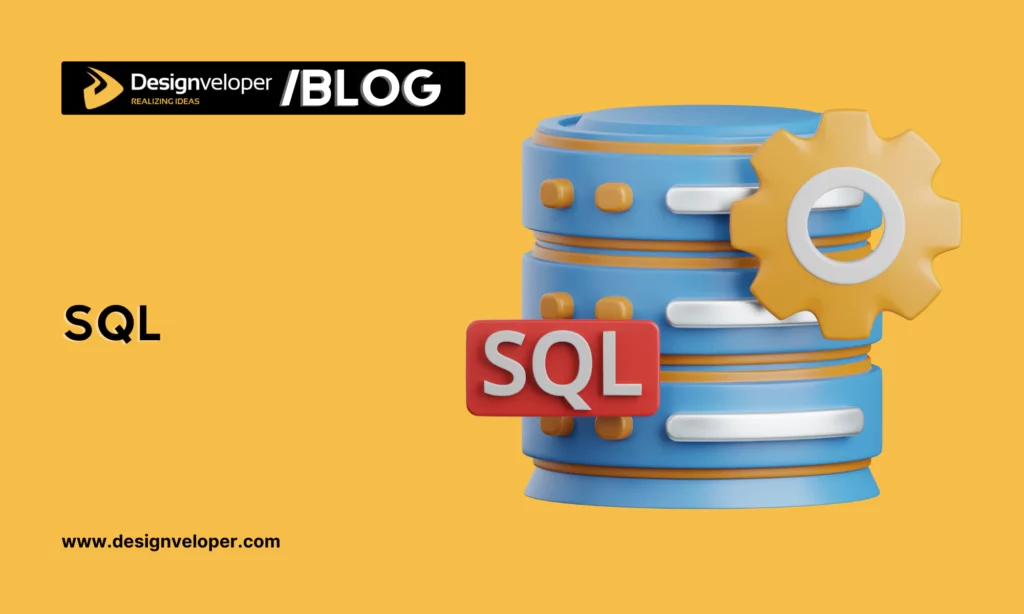
SQL is an essential programing language for beginners who want to work with data. It helps unleash the massive treasure trove of information stored in databases. SQL is a great option for beginners as it has relatively easy-to-learn syntax and a wide range of applications in data analytics, data science, and business intelligence.
What Can You Do With SQL?
As SQL plays an important role in data retrieval and analytics, you can use this programming language for the following things:
- Write queries to extract specific data from databases based on particular criteria.
- Filter and sort data based on certain conditions.
- Modify and update existing data within the database with proper permissions.
- Insert new data to the database.
- Create, adjust, and delete database structures and table with permissions.
In addition, you can leverage SQL for more advanced features like combining data from numerous tables to get in-depth insights or analyzing and summarizing large datasets.
10. TypeScript
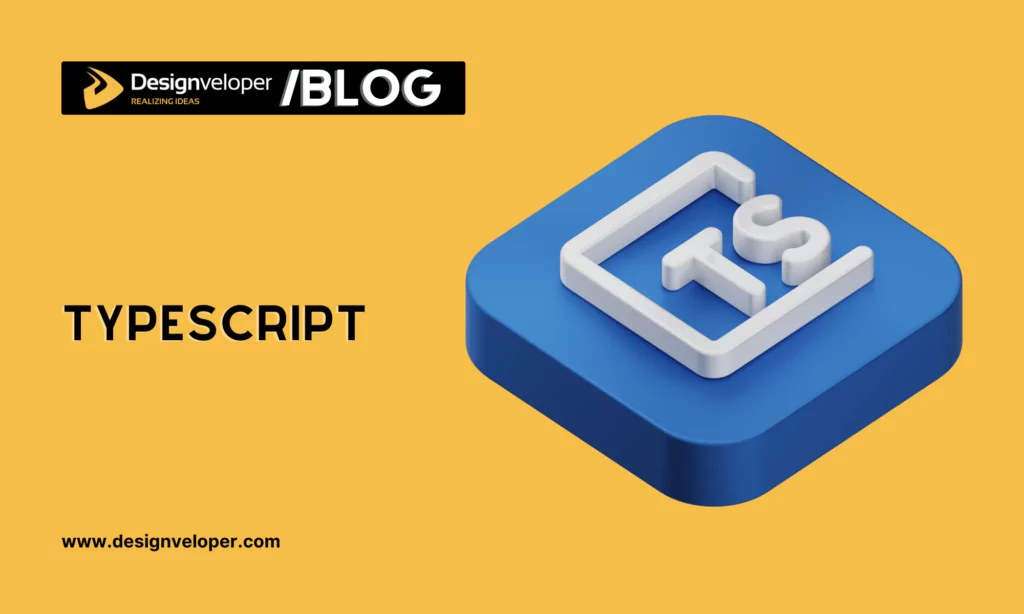
TypeScript is an open-source programming language created by Microsoft for web development. It comes to complement some weaknesses of JavaScript like lack of structures.
Accordingly, it supports you in developing sustainable and extra-powerful apps. It does so by adding a type system to JavaScript. This means you can define what kind of data your variables will hold (e.g., numbers, arrays, or strings). For this reason, your code becomes more readable, catches errors earlier, and supports you in building more sustainable apps.
What Can You Build With TypeScript?
Anything you can build with JavaScript, you can build with TypeScript. Accordingly, TypeScript helps you develop large-scale web apps, allows for better tooling and organization, and support server-side development.
Conclusion
The nice thing is that, when you’ve taken the first step, the second step is much easier regardless of the direction it takes you. Remember, the best way to learn to program is by getting your hands dirty. You’ll be the best soldier when you are fighting the real-world enemy. So, start with some best programming language for beginners in our list and share your experience with us.






Read more topics















































